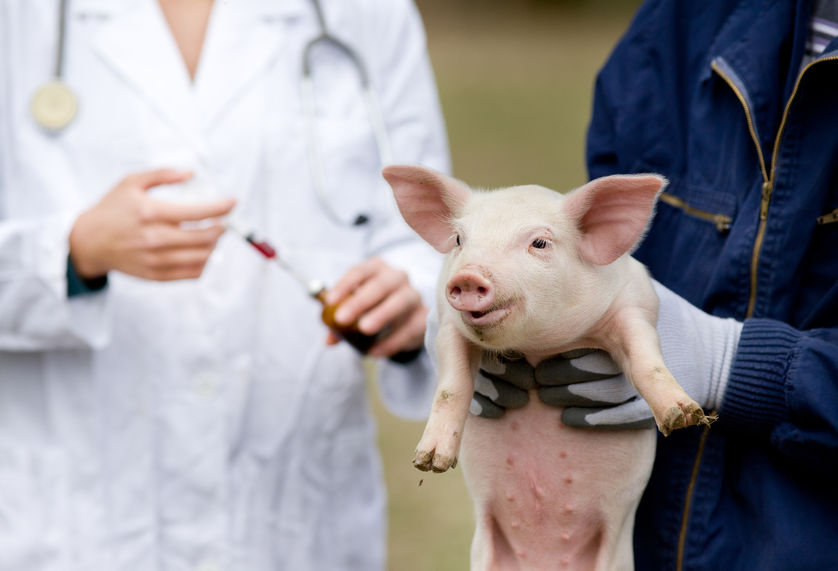
A breakthrough study has looked to alleviate the antibiotics 'time bomb' in the farming industry.
The study has looked into using 'bacteriophages', which are a range of viruses, as an alternative to antibiotics to treat common infections in livestock.
The study, by the University of Leicester and funded by the Agriculture and Horticulture Development Board (AHDB Pork), has determined that phage could accompany or replace the use of antibiotics across all livestock following a detailed research project which has focussed on pigs.
It has isolated 20 bacteriophages that combat 72 multi antibiotic resistant strains of the most important causes of gut problems in pigs.
Importantly, the scientists were able to dry out the phages to form a powder which could be orally administered to the animals via their feed.
These strains were isolated from clinical cases from the field and provided by the Animal and Plant Health Agency (APHA).
When used in combination, the bacteriophage cause a 4 log reduction in two hours.
'Change the way we treat infection'
Bacteriophages or phages are viruses that infect and kill bacteria.
They are much more specific than antibiotics and are used outside of the West to treat a whole range of bacterial infections, many of which do not respond to conventional antibiotics.
Professor Clokie, from the Department of Infection, Immunity and Inflammation, has spent the last decade applying an environmental and ecological framework attempting to understand the ecological roles or viruses in many bacteria that cause human disease.
In the UK, 40% of all antibiotics are used to treat animals. They are the same as those used to treat people.
Professor Clokie said: "There are many infections that we just can't treat with antibiotics because they have become resistant to them. So using the phage therapy for specific diseases could change the way we treat infection."
She added that early results indicated that phage therapy could be "completely transformative for human health" and that if trials in pigs work, the new therapy could be extended to treat people.
A review published last year by Lord Jim O'Neil called for reductions in the unnecessary use of antibiotics in agriculture, especially those that were "highly critical" to human health.
